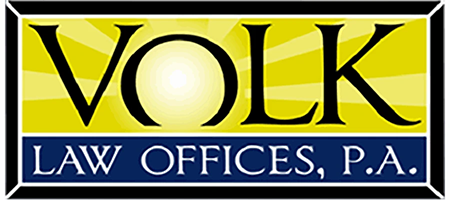Medical and Healthcare Business Help
Business Transactions
A health care practice has many business transactional issues, including the purchase and leasing of assets, clinic relocation and expansion, affiliation agreements with other health care providers and facilities, joint operating agreements, and mergers and the acquisition of other health care operations and practices. Practice confidentiality, non-disclosure agreements, agreements to purchase and develop real estate, vendor contracts, and the corporate structure of the clinic or practice should be addressed to minimize future issues and disputes.
Clinic Risk Management
Adverse events and poor medical outcomes can spiral into catastrophic claims and litigation. The risks inherent in the delivery health care diagnosis and treatment must be managed by insurance, internal policies, and the aggressive defense of frivolous legal claims. Many bad outcomes are simply a possible risk assumed by the patient in connection with a given care and treatment. Other claims may arise from such mundane occurrences as a slip-and-fall on the clinic property or an auto accident involving an employee.
Compensation and Benefits
Physicians, group practices, and medical facilities encounter a multitude of compensation issues for all levels of employees from administrative staff to the medical staff. These issues include basic salary, deferred compensation, bonuses, recruitment and relocation expense reimbursement, incentive fee arrangements, and compensation set-offs upon termination of the employment relationship. Good management practice requires a detailed employment agreement and 'unwind' provisions at the end of employment.
Fraud and Abuse
Failure to comply with federal 'Stark Laws' and related state laws can result in disastrous fines and penalties. Procedures must be in place regarding physician-directed gifts, travel, lodging, and tracking of 'business meals.' Physicians and practice groups must deal with a variety of vendor and potential business relationships that can result in serious legal issues if not handled in the proper manner. Since the passage and implementation of Obamacare, there are significant anticipated pending changes in the manner and scope of federal regulation of health care practices and reimbursement schemes the will require legal solutions and advice.
Health Insurance Portability and Accountability Act (HIPPA)
Federal law - HIPPA - mandates the protection of patient information, and allows the sharing of personal health care, diagnosis and treatment information. The provisions are applicable to health plans, health care providers, business associates, and health care clearinghouses. Compliance is extremely important and is governed by effective and comprehensive checklists, business associate agreements, and breach mitigation policies and procedures.
Health Plan Contracting
Medical practices can furnish health care services with outside business associates on a contract basis. It is important to have in place written agreements and policies to address compensation-payor terms, audit provisions, payment and pharmacy issues, and provider services and license agreements.
Labor and Employment Policy Manual(s)
All businesses must have policies in place to avoid or mitigate violations of state and federal laws and regulations that govern employees in the workplace. This is especially important in the health care industry where data breaches and adverse medical outcomes can result in injury, death, and the consequent costly litigation. Essential employment issues include Fair Labor Standards Act compliance, training and policies prohibiting employment discrimination, unionization, employees classified and working as independent contractors, blogging, employee wellness programs, and whistleblower reporting.
Medical Facility Ownership and Management
Every medical facility needs detailed agreements that addresses ownership and changes in ownership, maintenance, operational issues, sub-leases, licensing, and providing pharmacy and lab services on-site. Internal and external accountants are needed to manage, monitor and analyze ongoing financial operations consistent with budgets and long-term goals.
Medical Staff Supervision and Internal Governance
Each medical practitioner having an ownership interest in the practice is confronted with internal issues relating to the management of the business operations of the health care practice, and related issues such as compensation, licensing, and conditions of employment. Many operational disputes can be avoided with appropriate agreements and policies in place, including organizational issues for the business entity (LLC or corporation) with whom the health care providers are employed.
Non-Competition - Trade Secrets - Confidentiality Agreement
Recent appellate decisions in Florida may limit the application of non-compete provisions to health care practitioners. Trade secrets such as patient lists, forms, and internal policies may be covered by non-disclosure and confidentiality agreements. This protects the business after employment turnover.
Patient Care Policies, Safety, and Adverse Outcomes
Providing superior patient diagnosis, care and treatment is the paramount goal of any health care practice. Despite continued best efforts, problems and errors will occur. Health care providers need policies and agreements in place to deal with adverse outcomes, investigations and data collection, and compliance with statutory disclosure requirements.

